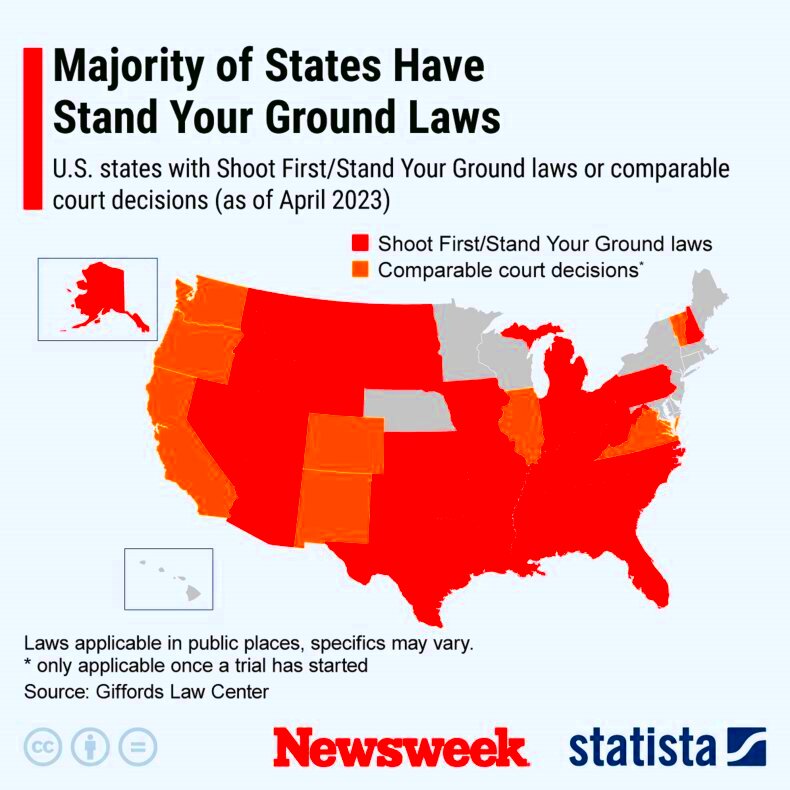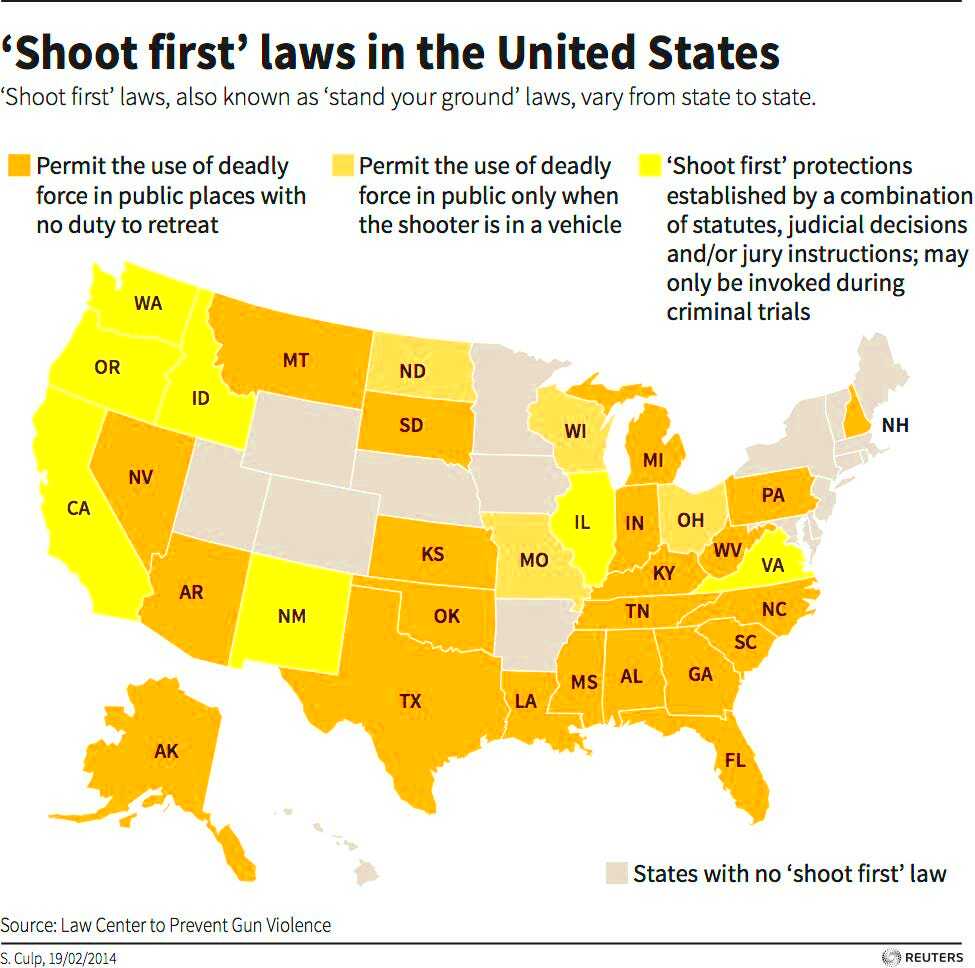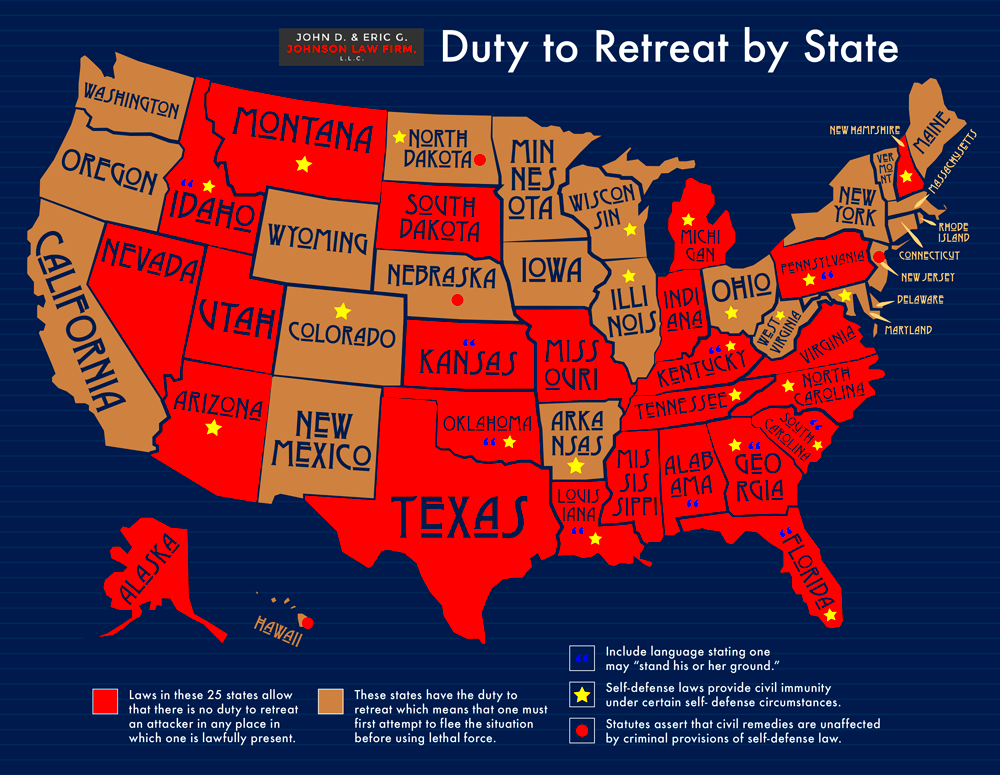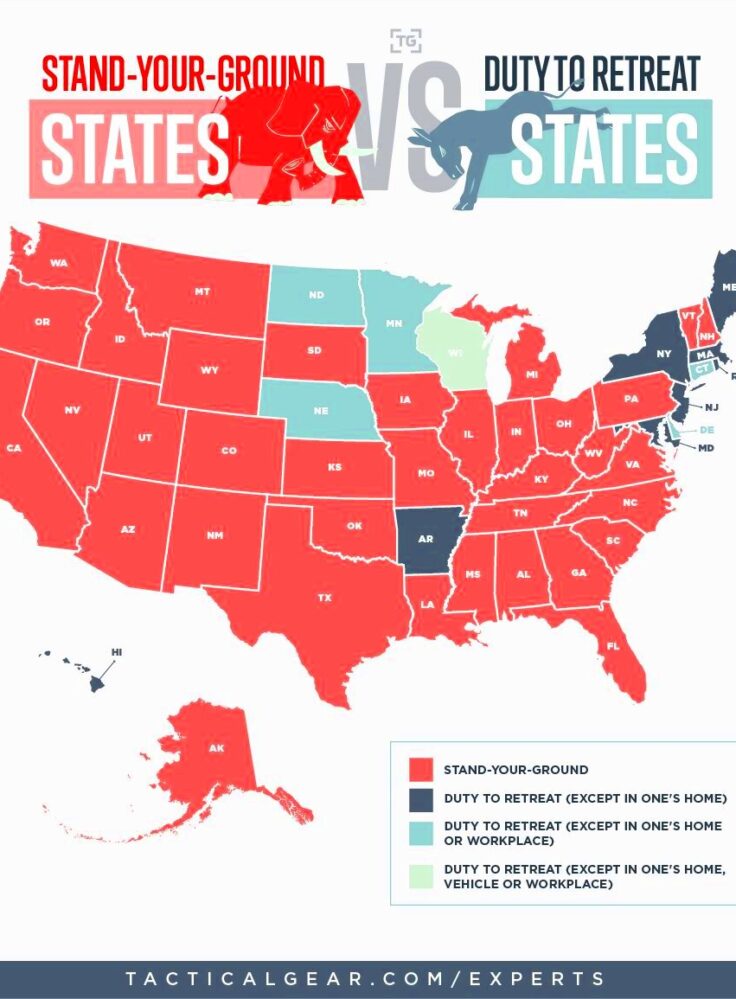Does Louisiana Have a Stand Your Ground Law and Its Legal Effects
The Stand Your Ground law in Louisiana allows individuals to use force, including deadly force, to protect themselves without the duty to retreat. This law is part of the state’s self-defense laws, and it has sparked significant debate. Understanding its implications is crucial for both residents and visitors to Louisiana, especially concerning personal safety and legal responsibilities.
Understanding Stand Your Ground Law

Stand Your Ground laws exist to provide individuals the right to defend themselves when faced with threats or perceived danger. Here’s what you need to know:
- Self-Defense Principle: The law supports the idea that individuals should not have to retreat if they feel threatened.
- Use of Force: Individuals may use reasonable force, including lethal force, if they believe it is necessary to prevent harm.
- Location Matters: The law applies to public spaces and private properties, giving individuals the right to protect themselves anywhere they have a legal right to be.
This law aims to empower citizens to take control of their safety but also requires a careful understanding of what constitutes a reasonable threat.
Key Provisions of Louisiana’s Stand Your Ground Law

Louisiana’s Stand Your Ground law is defined under Louisiana Revised Statutes 14:20. Here are its key provisions:
| Provision | Description |
|---|---|
| Reasonable Belief | A person must reasonably believe that the use of force is necessary to prevent imminent harm or death. |
| No Duty to Retreat | Individuals do not have to retreat before using force in self-defense. |
| Protection of Property | The law also extends to defending one’s home, vehicle, and workplace. |
| Legal Immunity | Individuals who act in self-defense may be immune from criminal prosecution and civil liability. |
Understanding these provisions is vital as they directly impact how individuals can respond to threats. It’s essential to be informed to ensure that actions taken in self-defense are legally justifiable.
Legal Effects of Stand Your Ground Law in Louisiana

The Stand Your Ground law in Louisiana has several significant legal effects that impact how self-defense cases are handled. These effects can influence both criminal and civil proceedings. Here’s what you should know:
- Self-Defense Claims: This law strengthens self-defense claims in court, allowing individuals to argue that their actions were justified based on perceived threats.
- Burden of Proof: The burden of proof often shifts to the prosecution. If a person claims self-defense under this law, it is up to the prosecution to prove that the use of force was not justified.
- Immunity from Prosecution: Individuals who act in accordance with the law may avoid criminal charges entirely if their actions are deemed justifiable.
- Civil Liability: The law also provides protection against civil lawsuits related to the use of force in self-defense situations.
While these effects can provide a sense of security for individuals, they also raise important questions about accountability and the potential for misuse. It’s vital for citizens to be aware of these legal ramifications when considering their rights under the Stand Your Ground law.
Comparison with Other States’ Stand Your Ground Laws
Stand Your Ground laws vary significantly from state to state, and Louisiana’s version is no exception. Here’s a comparison to help you understand how Louisiana stacks up against other states:
| State | Key Features | Differences from Louisiana |
|---|---|---|
| Florida | Explicitly includes “immunity from prosecution” provisions. | More detailed guidelines for evaluating self-defense claims. |
| Texas | Also allows for the use of deadly force in certain property defense situations. | More permissive regarding defending property compared to Louisiana. |
| California | No Stand Your Ground law; duty to retreat exists. | Stricter self-defense criteria than Louisiana’s law. |
Overall, while many states have adopted similar laws, the specifics can differ widely. Understanding these differences is essential for residents and visitors alike, as they can impact legal outcomes in self-defense situations.
Real-Life Cases Involving Stand Your Ground Law in Louisiana
Real-life cases highlight how the Stand Your Ground law is applied in Louisiana, providing insight into its impact on individuals and communities. Here are a few notable examples:
- The Jordan Hinson Case: In 2020, a homeowner used deadly force against an intruder. The court ruled in favor of the homeowner, citing the Stand Your Ground law as justification.
- The Gerald Lee Case: A man shot an individual who he believed was threatening him. The jury acquitted him, stating he acted within his rights under the law.
- The 2016 Shooting in Baton Rouge: During a confrontation, a man claimed self-defense after shooting another individual. The court found the use of force justified, aligning with the Stand Your Ground provisions.
These cases demonstrate how the law can protect individuals who act in self-defense but also show the complexities involved in such situations. They remind us that understanding the law is crucial for anyone navigating self-defense scenarios in Louisiana.
Criticism and Support for Stand Your Ground Law
The Stand Your Ground law in Louisiana has stirred a lot of debates, with supporters and critics presenting strong arguments for and against it. Let’s take a closer look at both sides of the issue:
- Support for the Law:
- Many proponents believe the law protects individuals’ rights to defend themselves without the fear of legal repercussions.
- Supporters argue it can deter crime, as potential criminals may think twice before attacking someone who might be armed.
- Advocates also say the law empowers citizens to take charge of their own safety in dangerous situations.
- Criticism of the Law:
- Critics contend that the law encourages vigilantism and may lead to unnecessary violence.
- Some argue it disproportionately affects minority communities, leading to biased outcomes in self-defense cases.
- There are concerns that the lack of a duty to retreat could escalate confrontations, resulting in tragic consequences.
This ongoing debate highlights the complexities of self-defense laws and the need for careful consideration of their implications on society. Understanding both perspectives can help individuals navigate discussions around the law more effectively.
Frequently Asked Questions about Stand Your Ground Law in Louisiana
When it comes to the Stand Your Ground law in Louisiana, many people have questions. Here are some common inquiries and their answers:
- What is the primary purpose of the Stand Your Ground law?The law allows individuals to use force without the duty to retreat if they believe it is necessary to prevent harm.
- Does the law apply in my home?Yes, the Stand Your Ground law applies to your home, workplace, and any place where you have a legal right to be.
- Can I be prosecuted if I use deadly force?Not necessarily. If your actions fall within the guidelines of the law, you may be immune from prosecution.
- What should I do if I face a threatening situation?Always prioritize de-escalation and retreat if possible. If you feel you must use force, ensure your actions align with the law.
These questions reflect common concerns about the law and help clarify its implications for individuals in Louisiana. Being informed can make a significant difference when it comes to understanding your rights.
Conclusion on the Impact of Stand Your Ground Law in Louisiana
The Stand Your Ground law in Louisiana significantly shapes how self-defense cases are approached and understood. Its legal effects, combined with the ongoing debate about its merits, create a complex landscape for residents and visitors alike. Here are a few key takeaways:
- Empowerment vs. Accountability: While the law empowers individuals to protect themselves, it also raises questions about accountability and potential misuse.
- Legal Clarity: Understanding the law is essential for anyone who wants to know their rights in self-defense situations.
- Ongoing Dialogue: The debate surrounding the law underscores the need for ongoing discussions about safety, justice, and community impact.
Ultimately, the Stand Your Ground law plays a crucial role in Louisiana’s legal framework. As society evolves, so too will the conversations surrounding self-defense and the balance between personal safety and communal responsibility.


